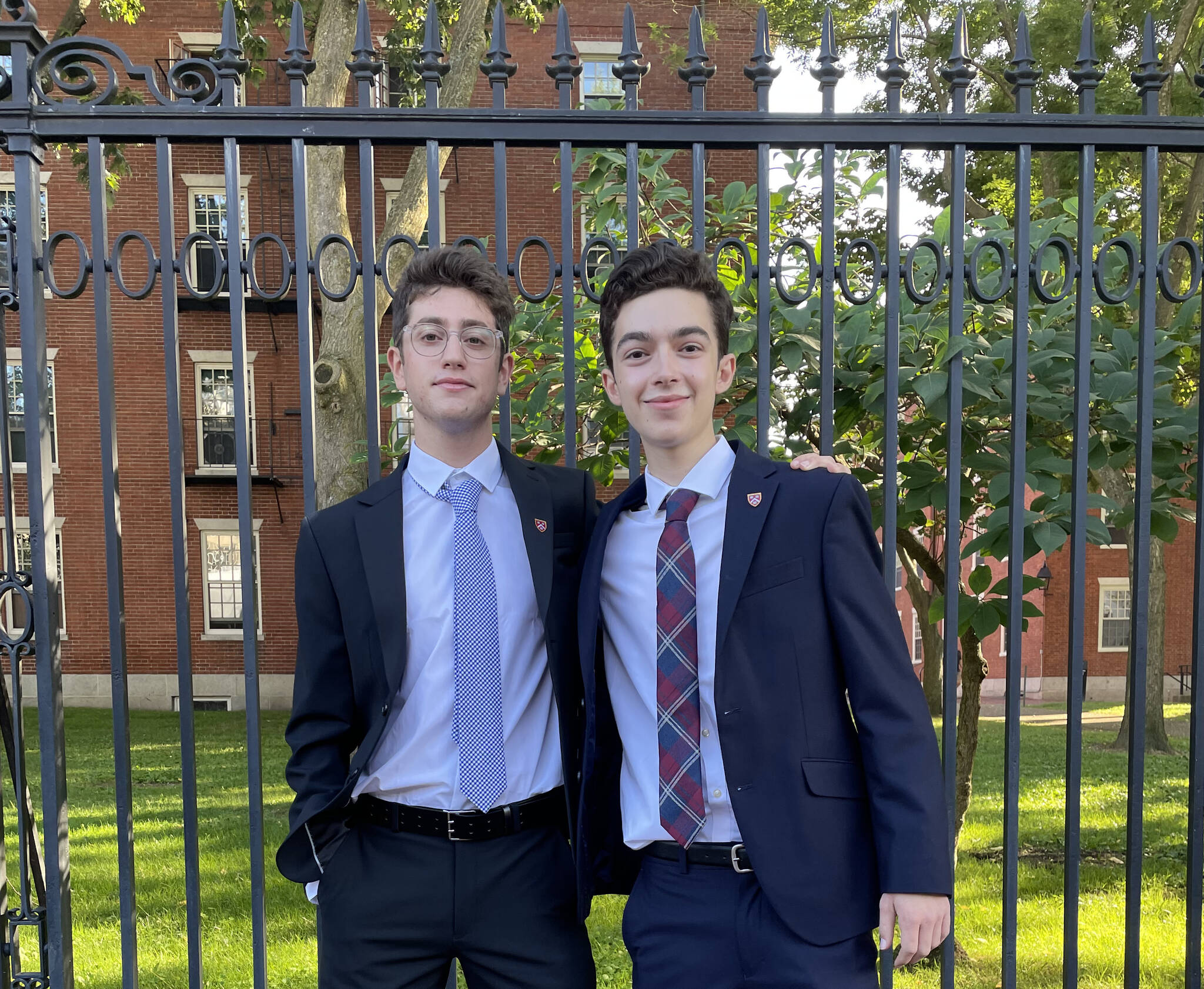After attending a protest on Feb. 28 in solidarity with Ukrainians during the Russian invasion, Avi Schiffmann wanted to raise his level of helping others.
The 19-year-old Mercer Islander and his Harvard University classmate Marco Burstein have banded together to help aid Ukrainian refugees by creating an independent platform connecting them with potential hosts in neighboring countries.
The computer science students launched http://UkraineTakeShelter.com on March 2.
On the secure website — which is natively translated into Ukrainian, Polish and a plethora of other languages — hosts can list information such as space available, transporation, first aid, spoken languages, child care, disability support, legal support and more.
“Refugees can search easily with comprehensive filtering and fast search results. We prioritize showing the closest hosts that best match their needs. Additionally, users can report inappropriate listings or share links to entries with others,” reads an email from Schiffmann.
Following the protest, Schiffmann returned home and delved into researching which organizations could help Ukrainians reach sanctuary, and found that there was a lack of communication between the agencies and citizens.
Schiffmann contacted Burstein the next morning on a video call, and after a discussion about the idea, their website coding, designing and programming began and lasted for two to three days with no sleep. Burstein, 18, did pry himself away from the project to take a midterm, but was back in action right after returning home. Schiffmann, who attended Harvard for one semester and is currently taking a break from school, kept working on the site non-stop until completion.
“We found existing efforts to connect refugees to hosts were extremely inefficient, unscalable, and hard to quickly sort through. We aimed to create an intuitive, secure, safe, and useful site,” wrote Schiffmann in a press kit, adding that he lives in San Diego, and Burstein was at Harvard during the website design and launch.
Schiffmann said they’re trying to get a media buzz going about the site in the United States in hopes of people relaying the information to the Ukrainian and Polish news outlets, which he said weren’t responding to the need for shelter quickly. They’ve been working with some user experience research teams that have been interviewing Ukrainians in need and referring them to the site.
“It’s been going great, we have over a thousand listings now all around the world, which is pretty crazy. It’s like doubling every 12 hours,” Schiffmann said in a March 7 interview with the Reporter.
In a separate interview with the Reporter on March 7, Burstein — who hails from Los Angeles — said he was immediately on board with Schiffmann when he brought the idea to the table.
“I think it’s amazing. I’m really glad to have been able to work with Avi on it,” said Burstein, who previously work on more localized projects with his high school, “But really nothing that felt like maybe it had this much of a global purpose.”
At Harvard, Burstein and his classmates are following the Ukraine-Russia situation and discussing it on campus, so he is thrilled to help make a difference for people on the other side of the globe.
“It’s one thing to stand up and speak and hold up a sign and do all these kinds of things, but I think what’s really cool these days is this whole newer concept of what I’ve been doing,” Schiffmann said. “It’s more digital activism, where I can make a website or a tool or an app or anything like that — that is a directly, practical use case for the people on the ground in the area.”
Schiffmann, an Internet activist who founded and developed one of the first and largest coronavirus tracking websites, nCoV2019.live, added: “Looking into the future, we hope to compile more resources that would aid refugees, such as which countries are currently accepting refugees and what their processes look like.”
During his break from Harvard, Schiffmann enjoys his freedom of working on his plethora of digital projects while staying in “hacker houses” with other like-minded individuals. Upcoming trips to Barcelona and Amsterdam are on his docket to further his work.
“I’m primarily good at just seeing opportunities and gaps and just like filling those gaps and just making useful products,” said Schiffmann, noting that his COVID-19 site was used by hundreds of millions of people all around the world.
The current situation in the Ukraine and Russia weighs heavily on Schiffmann’s mind. He said he has five citizenships, including some in Europe.
“It’s really crazy that there’s a war going on in Europe that I’m afraid of being drafted into if things escalated,” he said.



